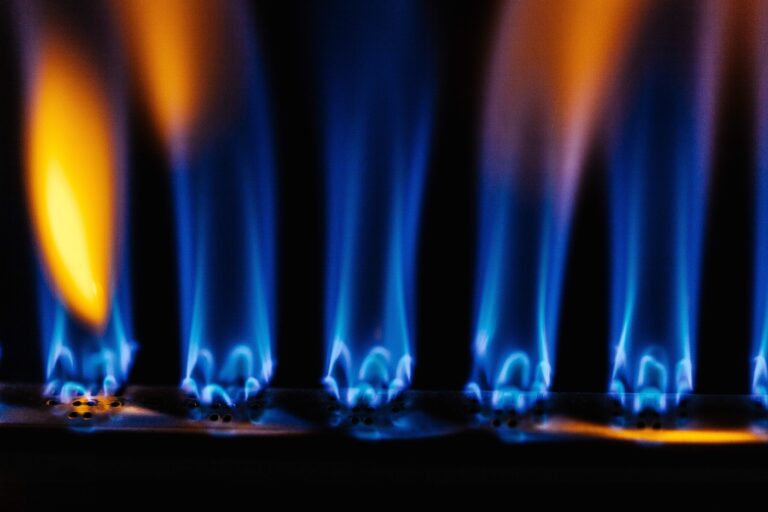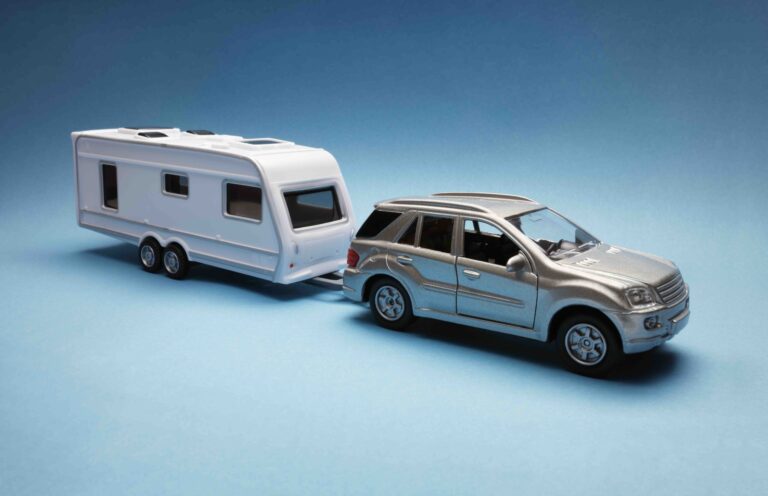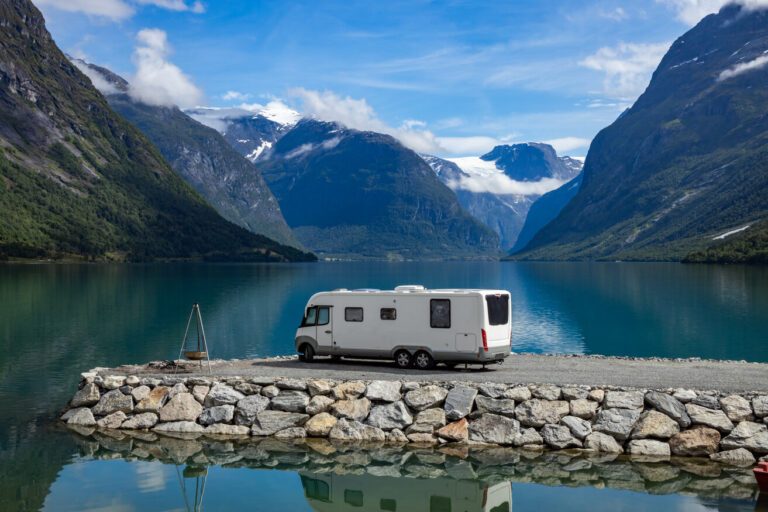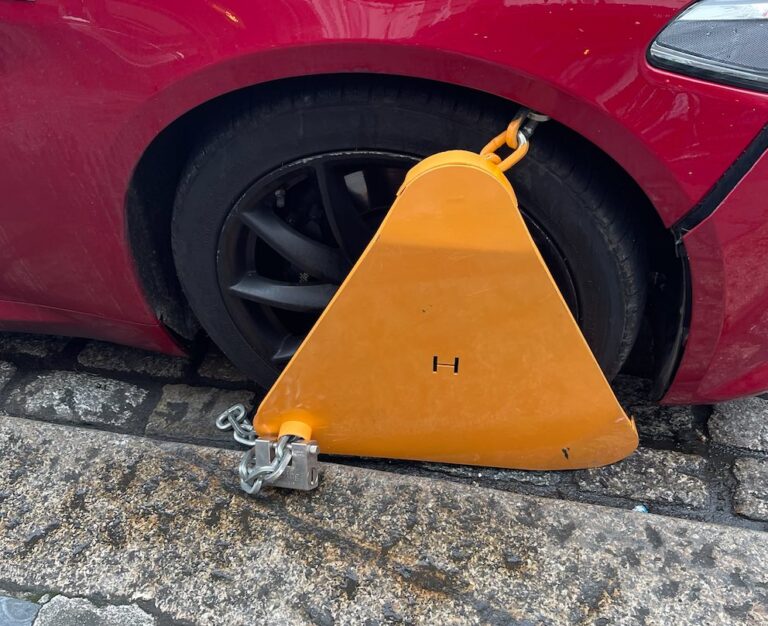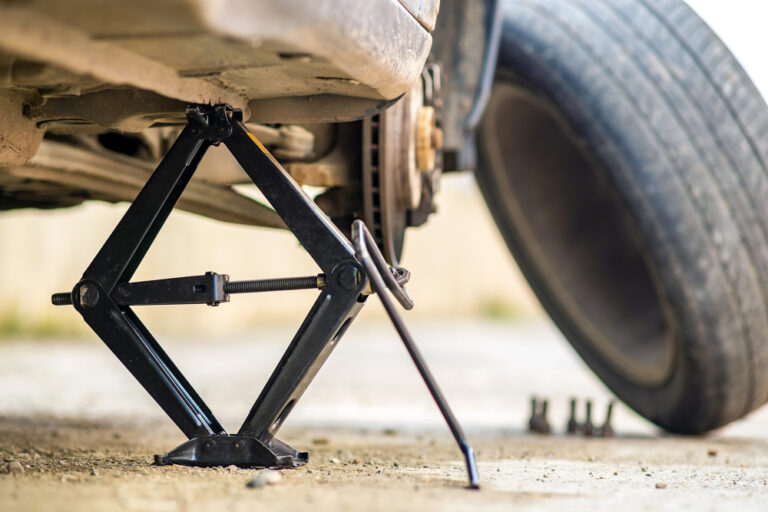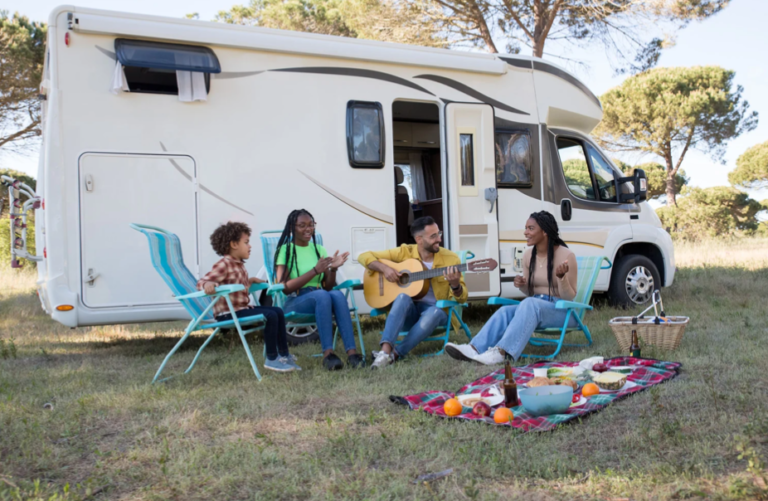Best Rv Batteries for BoonDocking and Dry Camping: info Guide

Mi Battery Choice
When it comes to boondocking in your RV, having the right battery is crucial to ensure a worry-free experience. One of the top options for RV batteries is the lithium-ion battery. These batteries are lightweight, durable, and have a higher energy density, making them perfect for extended off-grid adventures. They also have a longer lifespan compared to traditional lead-acid batteries, which means less frequent replacements.
Another excellent choice is the AGM battery. These batteries are known for their deep cycle capabilities, making them ideal for long trips without access to shore power. They are maintenance-free and have a low self-discharge rate, making them a reliable and convenient option. It’s important to consider your power needs when choosing the right battery for boondocking, as well as factors like weight, size, and overall performance.
Ultimately, investing in high-quality batteries will ensure that your boondocking experience is filled with uninterrupted power supply and fewer worries about running out of energy.
After much research and discussing batteries with experts the batteries I have listed below, I think are the best on the market for the price .
Check out the all videos I’ve researched on YouTube they are brilliant at relaying the right information, hopefully will save you money and time in the long run , be sure to subscribe and support the channels .
Overall Best for Boondocking & Dry Camping
The Renogy 200Ah Lithium Battery
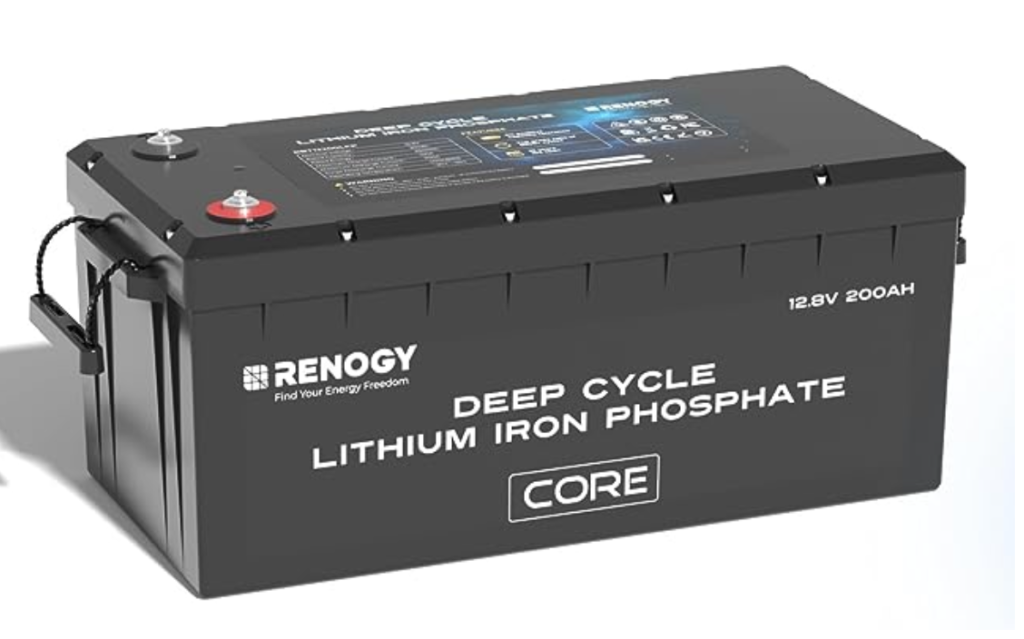
With a 200Ah capacity, it has ample power to run various appliances and electronics for an extended period without the need for an electrical hookup. The lithium battery technology provides superior performance, longevity, and a lightweight design compared to traditional lead-acid batteries.
The Renogy 200Ah Lithium Battery is also maintenance-free and has built-in safeguards against common battery issues such as overcharge, over-discharge, and excessive temperature. Its durability and reliability make it a favorite choice among RV owners who value their freedom to explore off-grid locations with peace of mind.
Best Non-Lithium for Long-term
The Renogy 12V 200AH Rechargeable Hybrid Gel Battery
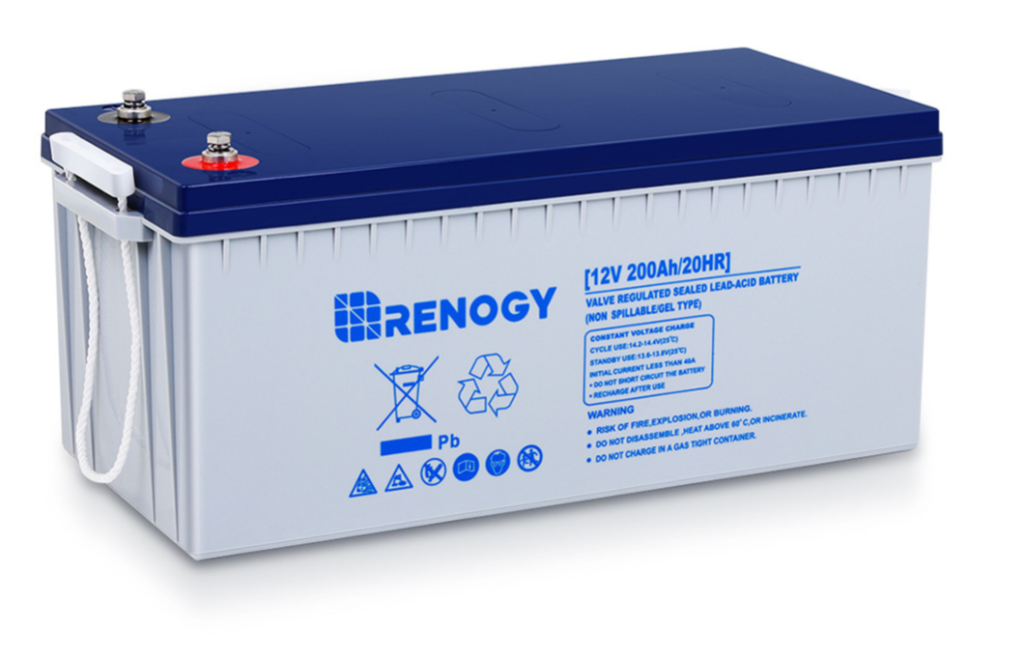
is an excellent choice for long-term boondockers who prefer a non-lithium option.
This battery utilizes gel technology, which makes it a battery, perfect for those who frequently dry camp or go off-the-grid. Gel batteries are known for their ability to deliver a consistent and reliable power supply throughout their lifespan. Unlike lead-acid batteries, gel batteries use a thick gel electrolyte instead of liquid, which means they are maintenance-free and spill-proof.
This makes them extremely safe and easy to use, even in rough conditions during road trips. With proper care, gel batteries can last for several years, making them a cost-effective choice for long-term boondocking. Additionally, this battery’s 200AH capacity ensures a large amount of power storage, making it ideal for building a battery bank.
Overall, the Renogy 12V 200AH Rechargeable Hybrid Gel Battery is a reliable and durable solution for RV owners who are looking for a long-lasting battery option.
Battle Born LiFeP04 Deep Cycle Battery
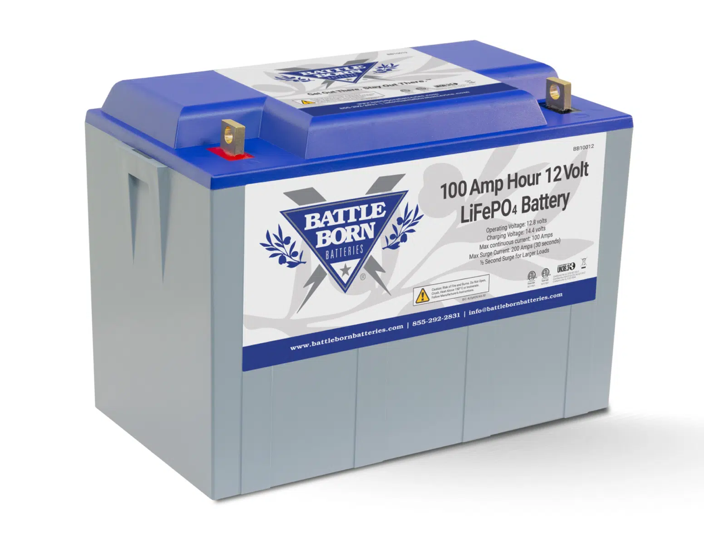
The Battle Born LiFeP04 Battery is a high-performance lithium battery designed for deep cycle applications.
It features a built-in battery management system (BMS) that monitors and protects the battery from overcharging, overdischarging, and short circuits. This advanced BMS ensures the longevity and safety of the battery. Compared to traditional lead-acid batteries, lithium batteries, like the Battle Born LiFeP04, have a longer lifespan, higher energy density, and faster charging capabilities.
With its impressive capacity of 100 amp-hours, it is an ideal choice for powering various devices and systems for an extended period. The compact design of this battery weighs significantly less than other RV batteries on the market, making it a popular choice for RV owners looking to save space and reduce weight. Additionally, Battle Born batteries can be used in a battery bank configuration to increase available power.
Overall, the Battle Born LiFeP04 Battery offers exceptional performance, durability, and convenience, surpassing traditional AGM batteries in many aspects.
Best Budget-Friendly Battery
Weize Deep Cycle RV Battery
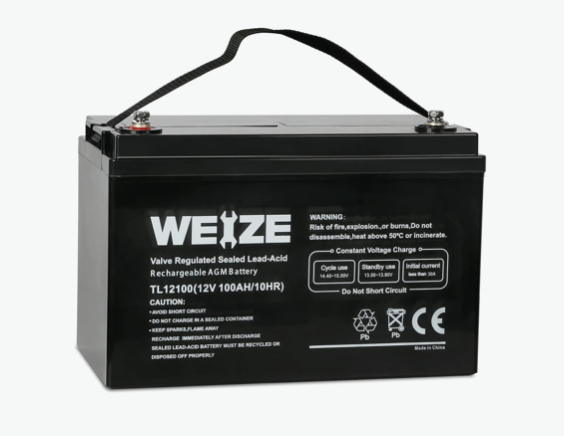
The Weize RV Battery is a great option for those who enjoy dry camping and boondocking. As a deep cycle battery, it is specifically designed to provide a steady and consistent power supply over an extended period of time. This makes it perfect for off-grid camping trips where access to electricity is limited or nonexistent.
The Weize Battery is also budget-friendly, making it an excellent choice for RV owners looking for a high-quality battery without breaking the bank. One of the key advantages of this battery is its long lifespan. With proper care and maintenance, it can last for several years, making it a cost-effective investment.
Whether you’re planning a weekend getaway or a longer camping trip, this battery has a longer discharge time and can provide the power you need to keep your RV appliances and electronics running smoothly throughout your adventure.
Best Battery for Short-Term
VMAX SLR125 AGM Sealed Deep Cycle 12V 125Ah Batteries
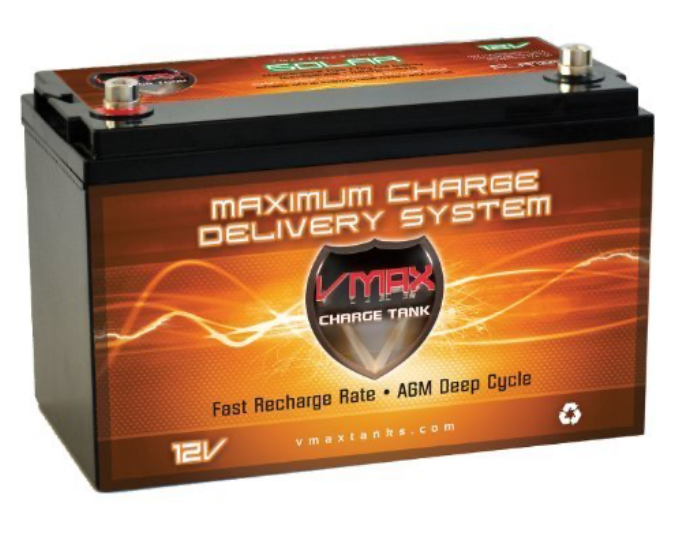
The VMAX SLR125 AGM Sealed Deep Cycle 12V 125Ah Batteries are high-performance, maintenance-free power sources designed for extended cycling and durability. Utilizing Absorbent Glass Mat (AGM) technology, these batteries offer a spill-proof and leak-proof design, making them suitable for a variety of applications, from renewable energy systems to marine and RV setups.
With a capacity of 125Ah, they provide ample energy storage for prolonged use, and their deep-cycle design ensures reliable power delivery over extended periods. These batteries are engineered to withstand deep discharges and recharges, making them a dependable choice for off-grid and heavy-duty applications.
Best 6v AGM Battery for Dry Camping
The VMAX XTR6-235 6 Volt 235Ah AGM
is widely regarded as the best 6v AGM battery for RV dry camping or boondocking. With its high capacity of 235Ah, it provides long-lasting power for extended periods of time.
AGM batteries are ideal for deep cycle use, meaning they can be discharged and recharged multiple times without losing much of their capacity. This makes them perfect for dry camping and boondocking, where access to electricity is limited or non-existent. Unlike their counterparts, lithium batteries, AGM batteries are more affordable and require less maintenance.
They are also less sensitive to temperature variations and can withstand extreme weather conditions. Whether you are venture out for camping or boondocking in remote locations, the VMAX XTR6-235 6 Volt 235Ah AGM Deep Cycle Battery ensures a reliable power source for all your essential needs.
This battery is a game-changer for those seeking a cost-effective solution for their dry camping and boondocking adventures.
Best Overall Battery for Dry Camping:
Battle Born 12v LiFePO4 Deep Cycle Battery

When it comes to dry camping, having a reliable and long-lasting battery is crucial. That’s why the Battle Born 12v LiFePO4 is the best RV battery for dry campers. Unlike regular lead-acid batteries, this 100ah battery is a specially designed for extended use and deep discharges.
This battery type is known to provide reliable power for longer periods without losing efficiency. With Battle Born Batteries, you can expect a superior dry camping experience as their deep cycle batteries can withstand the demands of various appliances and electronics onboard your RV. Whether you need to power your lights, water pump, or fridge, this battery can handle it all.
Furthermore, it is compatible with solar panels, allowing you to recharge the battery while enjoying the great outdoors. Overall, if you’re looking for a top-notch battery for your dry camping adventures, the Battle Born 12v LiFePO4 Deep Cycle Battery is the ideal choice.
Boondocking: What is it exactly
Boondocking, also known as dry camping, refers to the act of camping in an RV or motorhome without any connections to a traditional campground. Instead of relying on amenities such as electricity and water hook-ups, boondockers often rely on their own resources to sustain themselves while enjoying the great outdoors.
Many boondockers invest in solar panels and the best batteries to generate and store their own electricity, making them self-sufficient even in remote locations.
This type of camping allows individuals to fully immerse themselves in nature and escape the crowds that are commonly found in campgrounds. Boondockers can choose from a wide range of free or low-cost camping locations, such as public lands and national forests, providing them with a unique opportunity to explore off-the-beaten-path destinations.
For those seeking a more adventurous and independent camping experience, boondocking offers a sense of freedom and self-reliance .
The Benefits if your Boondocking.
Boondocking, also known as dry camping, is a popular option for RV enthusiasts seeking a more adventurous and cost-effective travel experience. Unlike staying at a crowded RV park, boondocking allows you to camp in remote areas where there are no hookups or amenities.
One of the major benefits of boondocking is the opportunity to enjoy nature to its fullest, as you can choose breathtaking locations away from the crowds. Moreover, boondocking saves you money that you would otherwise spend on RV park fees.
By simply investing in the best batteries you can rely on a sustainable power source to run your appliances and electronics. Additionally, boondocking promotes self-sufficiency and independence, as you learn to conserve resources, such as water and energy, and rely on your own skills to solve any issues that may arise.
Overall, boondocking offers a unique and rewarding experience for RV travelers who value freedom, nature, and cost savings.
Dry Camping: What is it exactly
Dry camping, also known as boondocking, is a type of camping or boondocking where campers do not have access to the typical amenities found in developed campgrounds. It is camping without the luxuries of electricity, water hookups, and sewer connections.
Instead, dry campers rely on their own resources to meet their basic needs. They typically camp in remote locations such as public lands or wilderness areas, away from the hustle and bustle of crowded campgrounds. Without the luxury of electricity, dry camping and boondocking enthusiasts rely on alternative energy sources such as power from the battery and solar panels.
These energy sources provide them with enough power to charge their electronic devices, refrigerate food, and run basic appliances. Dry camping allows campers to experience nature in a more raw and authentic way, away from the conveniences of modern life. It encourages self-sufficiency and resourcefulness, as campers must plan accordingly and be mindful of their limited resources.
RV Battery Types for Dry Camping & Boondocking
When it comes to dry camping and boondocking, many RV owners are looking for the best batteries to power their adventures off the grid.
The type of battery you choose can make a big difference in how long you can stay out in the wilderness without needing to recharge. One popular option is a deep cycle battery, which is designed to provide a steady amount of power over a long period of time. These batteries typically have a higher amp hour (ah) rating, meaning they can hold more energy.
However, it’s important to note that the amount of energy a battery can hold is not the same as the amount it can supply. For example, a 100ah battery can only supply around 50ah of usable power before it needs to be recharged. To increase the amount of usable power, many RV owners will set up a battery bank with multiple batteries.
This allows them to extend their time off the grid and enjoy longer boondocking adventures. When choosing the best batteries for dry camping and boondocking, it’s important to consider factors such as energy capacity, weight, and overall lifespan.
The key element that makes boondocking possible?
One key element that makes boondocking possible is the use of RV batteries. Unlike typical camping trips where campers rely on electrical hookups, boondocking enthusiasts prefer to camp in more remote locations without access to power sources.
RV batteries are crucial for providing the necessary electricity to power various appliances and systems onboard, such as lights, water pumps, and refrigerators. These batteries are often deep cycle batteries, designed to provide a steady and sustained flow of power over a longer period.
They can be charged using various methods such as solar panels, generators, or even while driving the RV. The capacity and type of battery used can greatly determine the length of time one can boondock without needing to recharge.
Proper management and conservation of battery power are essential to ensure a longer boondocking experience. With the help of RV batteries, boondocking enthusiasts can enjoy the beauty of nature while still having the comforts of electricity.
RV Battery Types for Dry Camping & Boondocking
When it comes to dry camping and boondocking in an RV, having the right type of battery is crucial. One popular choice for RV batteries is the deep cycle battery.
These batteries are designed to provide a steady amount of power over an extended period of time. Another option is Lithium-ion batteries, which offer several advantages over traditional deep cycle batteries.
They are lightweight, have a longer lifespan, and can be discharged to a greater extent without damaging the battery. AGM batteries, on the other hand, are a type of deep cycle battery that uses Absorbent Glass Mat technology. They are known for their maintenance-free operation and ability to handle high discharge rates.
When choosing a battery for dry camping and boondocking, it is important to consider your power needs, budget, and the available space in your RV. Ultimately, the right type of battery will depend on your specific requirements and preferences.
How TO Charge My RV House Batteries?
To charge my RV house batteries, there are several options available. One popular method is to install a solar panel on the roof of the RV. The solar panel harnesses the sun’s energy and converts it into electricity to charge the house batteries. Another option is to connect the RV to a power source at an RV park.
This allows the batteries to be charged directly through the electrical hookup. When choosing a battery for the RV, it is important to consider the type of battery that best suits your needs. For boondocking adventures, where electrical hookups are not available, a deep cycle battery is recommended.
These batteries are designed to provide extended power and withstand frequent charging and discharging cycles. It is always advised to consult with an expert to determine the right kind of battery for your specific RV setup and usage. Whether relying on solar power or connecting to a power source at an RV park, keeping the house batteries charged ensures uninterrupted power supply while on the road.
Understanding the Best Battery Setup for an RV?
Understanding the best battery setup for an RV is crucial, especially for those who plan on dry camping. Dry camping, also known as boondocking, refers to camping in a location without access to electrical hookups.
In such situations, having reliable and efficient RV batteries becomes essential. There are various types of RV batteries available on the market, including AGM (absorbent glass mat) and lithium-ion batteries.
AGM batteries are a popular choice due to their durability and ability to handle deep discharges. On the other hand, lithium-ion batteries are lighter and have a longer lifespan, but they can be more expensive. When considering the battery setup for an RV, factors such as power requirements, space availability, and budget must be taken into account.
It is also essential to determine the number of batteries needed based on the energy consumption of the appliances and devices used in the RV. Overall, understanding the best battery setup ensures a smooth and hassle-free dry camping experience with sufficient power supply.
Considerations Before Buying a 12-Volt RV Battery
Before buying a 12-Volt RV battery, there are several important considerations to take into account. Firstly, it is crucial to determine the energy requirements of the RV. Different models and sizes of RVs have varying energy needs. So, it is essential to know how much power is needed to run appliances and systems in the vehicle to ensure that the chosen battery will be able to meet those needs.
Secondly, one should consider the type of activities they plan to engage in while using their RV. If dry camping, where access to electricity is limited or nonexistent, opting for a battery with high capacity and long-lasting power becomes even more critical. Additionally, the overall capacity and lifespan of the battery should be evaluated, as this will impact its longevity and ability to hold a charge over time.
It is also crucial to factor in the weight of the battery, as heavier batteries can affect the balance and fuel efficiency of the RV. Lastly, checking for safety features and warranty options is advisable to ensure a reliable and secure purchase.
What to Understand about Batteries for Boondocking
When boondocking, it is crucial to understand the importance of RV batteries. RV batteries are a key component to ensuring a successful and enjoyable boondocking experience. When shopping for RV batteries, it is essential to consider the type of battery. Two popular options are deep cycle and lithium batteries.
Deep cycle batteries are designed to provide a consistent amount of power over an extended period of time, making them ideal for boondocking. On the other hand, lithium batteries are known for their longevity and higher energy density, which allows for more power storage in a smaller size.
Another important factor to consider is battery capacity, which determines the amount of power that can be stored. Boondockers should aim for a battery with sufficient capacity to meet their power needs for the duration of their trip. Additionally, it is crucial to properly maintain and care for the batteries, regardless of the type chosen.
Understanding the different types and capacities of RV batteries will ensure that boondockers can have a reliable and long-lasting power source during their adventures.
Costs of different batteries
The cost of batteries can vary significantly depending on the type and size of the battery. Lithium-ion batteries, for example, are commonly used in consumer electronics, electric vehicles, and renewable energy storage systems.
They are known for their high energy density and long lifespan, but they can be relatively expensive compared to other battery types. On the other hand, lead-acid batteries are widely used in applications such as vehicles, uninterruptible power supply (UPS) systems, and backup power solutions.
These batteries are generally more affordable but have a shorter lifespan and lower energy density compared to lithium-ion batteries. Nickel-metal hydride (NiMH) batteries are another option that falls in between lithium-ion and lead-acid batteries in terms of cost.
They offer a good balance between price, energy density, and lifespan, making them suitable for various applications including portable electronics and hybrid vehicles. Overall, the cost of batteries varies depending on factors such as technology, energy capacity, and manufacturing scale.
Battery Capacity:
Battery capacity refers to the amount of charge that a battery can store, typically measured in ampere-hours (Ah) or milliampere-hours (mAh). It is an important factor to consider when selecting a battery for a particular device or application.
A battery with a higher capacity can provide longer-lasting power and can support devices that require more energy. For example, a smartphone with a larger battery capacity can last longer before needing to be recharged compared to one with a smaller battery capacity. Similarly, a laptop with a higher battery capacity can handle more intensive tasks and provide longer operating times.
It is important to note that battery capacity is not the only factor determining the overall battery performance. Other factors such as battery chemistry, overall design, and power usage of the device also play crucial roles.
Therefore, it is advisable to consider multiple factors and assess the specific needs of the device or application before making a decision on the battery capacity.
Battery Lifespan.
Battery lifespan refers to the length of time a battery can retain its capacity to hold a charge and provide power. It is an essential consideration for consumers when purchasing devices that rely on batteries, such as smartphones, laptops, and electric vehicles.
A battery’s lifespan is influenced by various factors, including its chemistry, usage patterns, and charging habits. Lithium-ion batteries, commonly found in portable electronics, typically have a lifespan of two to three years, with the capacity gradually decreasing over time.
Overcharging or exposing the battery to extreme temperatures can significantly reduce its lifespan. Additionally, frequent shallow discharges can also reduce battery life, as it is more beneficial for lithium-ion batteries to be recharged from partial discharge rather than full discharge. To extend the lifespan of batteries, it is advisable to store them in cool temperatures when not in use and avoid extreme charge cycles.
Regularly updating device software and managing background applications can also help optimize battery performance. Proper care and usage ensure longer battery life and contribute to a more sustainable and cost-effective approach to using portable devices.
Battery Power Outputs.
Battery power outputs refer to the amount of electrical current that can be delivered by a battery. This is determined by the capacity of the battery and the voltage it provides. Battery power outputs are commonly measured in terms of voltage and amperage.
Voltage is the force that pushes the electric current through a circuit, and it is typically measured in volts. Amperage, on the other hand, is the actual amount of electric current flowing through a circuit, and it is measured in amperes.
The power output of a battery can vary depending on factors such as the type and size of the battery, as well as the load it is connected to. Batteries with higher voltage outputs are often preferred for applications that require more power, while batteries with higher amperage outputs are desirable for devices that need to deliver electricity quickly.
Understanding battery power outputs is essential for selecting the appropriate battery for a specific device or application.
Continuous Charge Current
Continuous charge current refers to the flow of electric charge in a circuit that is uninterrupted over a period of time. In other words, it is the constant movement of electrons through a circuit, without any interruptions or breaks.
This is often used in battery charging, where a continuous current is supplied to recharge the battery and ensure its proper functioning. By providing a steady flow of charge, the battery can regain its stored energy and be ready for use again.
Continuous charge current is typically measured in amperes (A) and can vary depending on the charging method and the capacity of the battery. It is important to carefully regulate the charge current to prevent overcharging, which can damage the battery and shorten its lifespan.
Therefore, understanding and controlling continuous charge current is crucial for efficient and effective battery charging.
Understanding Voltage in RV Batteries
Understanding voltage in RV batteries is essential for anyone who owns or is planning to own an RV. Voltage is essentially the electrical pressure that drives the flow of current in a battery. The voltage level of an RV battery can vary depending on various factors such as the specific type of battery, its charge level, and the electrical devices being powered. The most common voltage levels for RV batteries are 12 volts, 24 volts, and 48 volts. It is impo
rtant to understand the voltage level of your RV battery as it can determine the overall performance and functionality of your electrical system. Different electrical devices and appliances require different voltage levels to operate efficiently. By understanding the voltage level of your RV battery, you can ensure that you have the appropriate batteries and electrical components to power your desired devices.
Additionally, understanding voltage can help you monitor the health and state of charge of your battery, ensuring optimal performance and extending its lifespan.
Amp Hours EXPLAINED
Amp hours play a crucial role in boondocking, especially when relying on solar panels. Boondocking refers to camping off-grid, without any hookups to electricity.
During a boondocking trip, solar panels are often used to harness the sun’s energy and charge the battery bank. The battery bank, commonly made up of house batteries, stores this energy for use when needed. Amp hours, represented as Ah, are a unit of measurement that indicates the battery’s capacity to provide a certain amount of current over a specified period.
When boondocking, it’s important to understand the amp hours available in the battery bank to ensure sufficient power for various devices and appliances. This knowledge allows campers to estimate how long they can run certain electrical equipment before needing to recharge their batteries.
So, by effectively managing their amp hours, boondockers can enjoy an uninterrupted power supply while immersing themselves in the beauty of nature.
Watt Hours
When boondocking, understanding watt hours is essential for managing your power usage effectively. Watt hours (Wh) is a unit of energy that represents the amount of power consumed over a certain period of time. It is calculated by multiplying the wattage of an appliance by the number of hours it is used.
For example, if you have a 100-watt fridge running for 10 hours, it will consume 1000 watt hours (100W x 10h = 1000Wh) of energy.
Knowing the watt hours consumption of your appliances is crucial for determining how much power you need when boondocking. This information helps you decide how long you can run certain appliances before you drain your battery bank. By monitoring your watt hours usage, you can optimize your power usage and prevent overloading your battery system.
It is also important to consider the capacity of your battery bank in watt hours to ensure it can meet your energy needs while boondocking. So, understanding watt hours is a key aspect of successfully managing power consumption for boondocking adventures.
How TO Charge My RV House Batteries?
To charge my RV house batteries, there are several options available. One popular method is to install a solar panel on the roof of the RV, for more information on batteries and solar check our other blog . The solar panel harnesses the sun’s energy and converts it into electricity to charge the house batteries. Another option is to connect the RV to a power source at an RV park.
This allows the batteries to be charged directly through the electrical hookup. When choosing a battery for the RV, it is important to consider the type of battery that best suits your needs. For boondocking adventures, where electrical hookups are not available, a deep cycle battery is recommended.
These batteries are designed to provide extended power and withstand frequent charging and discharging cycles. It is always advised to consult with an expert to determine the right kind of battery for your specific RV setup and usage. Whether relying on solar power or connecting to a power source at an RV park, keeping the house batteries charged ensures uninterrupted power supply while on the road.
Understanding the Best Battery Setup for an RV?
When it comes to understanding the best battery setup for an RV, there are a few key factors to consider. The battery setup you choose will greatly impact your ability to boondock and stay off the grid for extended periods of time.
One popular option is to use lithium-ion batteries, as they offer several advantages over traditional lead-acid batteries.
Lithium batteries are lightweight, have a longer lifespan, and can be discharged to a greater extent without causing damage. This makes them ideal for deep cycle applications, which is important for powering appliances and electronics in an RV. Additionally, lithium-ion batteries charge more efficiently and can handle high charging rates, allowing them to be recharged quickly using solar power or a generator.
Overall, a lithium-ion RV battery setup is often considered the best choice for boondocking enthusiasts who need reliable and long-lasting power for their off-grid adventures.
12 Volt 100 AH Lead Acid vs 12V 100 AH Lithium Batteries
When it comes to choosing the right batteries for your RV life, it’s important to consider the differences between 12 Volt 100 AH lead acid and 12V 100 AH lithium batteries. Lead acid batteries have been around for a long time and are a popular choice for RV owners due to their affordability and availability.
However, they have some drawbacks. They are heavy and bulky, making them difficult to handle and install in an RV. Additionally, lead acid batteries have a limited lifespan and require regular maintenance. On the other hand, lithium batteries are a newer technology that offer several advantages for RV batteries.
They are lightweight and compact, making them easier to handle and install. Moreover, lithium batteries last longer than lead acid batteries and require minimal maintenance. Although lithium batteries have a higher upfront cost, they provide better overall performance and are a more durable and reliable option for RV owners.
Maintaining Your Battery Life While Boondocking
When you are boondocking or camping off the grid, maintaining your battery life becomes crucial. To maximize the lifespan of your batteries and ensure a reliable power source, there are several things you can do.
Firstly, be mindful of your energy usage and make it a habit to turn off any unnecessary electrical devices when not in use.
This includes lights, fans, and appliances. Secondly, consider investing in solar panels to harness solar energy and recharge your batteries during the day. Solar power is a sustainable and environmentally-friendly option. Thirdly, use propane for cooking and heating instead of relying solely on electricity.
This will reduce the strain on your batteries. Additionally, regular battery maintenance is important. Clean the battery terminals periodically and check for any signs of corrosion.
Finally, investing in a battery monitor can help you keep track of your battery’s charge level and avoid over-discharging. By implementing these practices, you can conserve energy and maintain optimum battery life while enjoying the freedom of boondocking.
Maintenance-Free Options
Maintenance-free options are a popular choice for those who want to minimize the time and effort spent on upkeep and repairs. In today’s fast-paced world, people are looking for convenient solutions that require less maintenance, allowing them to focus on more important things. One example of a maintenance-free option is synthetic turf for grassy areas.
Unlike natural grass, synthetic turf does not require mowing, watering, or fertilizing, saving both time and money on maintenance costs. Another example is vinyl siding for homes. Vinyl siding is durable, long-lasting, and doesn’t require painting or regular maintenance like wood siding does.
This low-maintenance alternative can give homeowners peace of mind while enhancing the beauty and value of their homes. Additionally, there are maintenance-free options for household appliances, such as self-cleaning ovens, dishwashers with food disposals, and washer-dryer combinations that require little to no maintenance.
Whether it’s for your outdoor space or indoor appliances, maintenance-free options offer a convenient and hassle-free alternative for those seeking a more simplified lifestyle.
Charging RV Batteries when Boondocking
When boondocking or dry camping, where no electrical hookups are available, charging RV batteries becomes crucial. RV batteries are the primary source of power in such situations, providing electricity for various appliances and devices. To charge the batteries efficiently, a battery bank or system can be used, which comprises multiple batteries connected together.
One of the most popular methods of charging RV batteries is using solar panels. Solar panels harness the energy from the sun and convert it into electricity, which is then stored in the battery bank. This allows campers or boondockers to have a continuous supply of battery power without the need for a generator or connecting to a power source.
When choosing the best solar panel for the battery system, factors like the size of the RV, energy requirements, and available sunlight should be considered. By using solar panels for charging RV batteries, campers can enjoy the freedom and flexibility of boondocking while still having the necessary power for their camping adventure.[[Heading:]] Charging RV Batteries when Boondocking
Troubleshooting Common Issues with RV Batteries
One common issue with RV batteries is a lack of power or a sudden loss of power. This could be caused by a few different factors, such as a dead battery, a loose connection, or a faulty charging system.
To troubleshoot this issue, start by checking the battery to ensure it has enough charge. If it is dead, you may need to recharge it or replace it altogether. Next, inspect the battery connections to make sure they are secure and free of corrosion. If any connections are loose or corroded, tighten or clean them as necessary.
Finally, test the RV’s charging system to see if it is functioning properly. If the charging system is faulty, it may need to be repaired or replaced.
Another common issue with RV batteries is overcharging. This can happen if the battery charger is left connected for too long or if it is not properly regulating the charge. To troubleshoot this issue, check the battery charger to ensure it is set to the correct voltage and that it is functioning properly. If necessary, replace the charger with a new one that is specifically designed for RV batteries.
Tips for Boondocking
FAQ
Q: What are the best RV batteries for boondocking?
A: The best RV batteries for boondocking are deep cycle batteries, specifically AGM (absorbent glass mat) or Lithium-ion batteries. These types of batteries are designed to provide long-lasting power and can handle regular deep discharges without suffering damage.
Q: What is the difference between AGM and Lithium-ion batteries?
A: AGM (absorbent glass mat) batteries are a type of lead-acid battery that uses a special fiberglass mat to hold the electrolyte. They are maintenance-free, have a good lifespan, and can handle deep discharges. On the other hand, Lithium-ion batteries use a different chemistry and offer higher performance, longer lifespan, faster charging, and are lighter in weight.
Q: How long do RV batteries last while boondocking?
A: The lifespan of RV batteries while boondocking can vary depending on various factors, including the type of battery, usage patterns, and maintenance. Generally, deep cycle batteries like AGM or Lithium-ion batteries can last anywhere from 5 to 15 years with proper care and maintenance.
Q: How many batteries do I need for boondocking?
A: The number of batteries needed for boondocking depends on your power requirements. It is recommended to calculate your power usage and determine your battery bank capacity accordingly. As a general guideline, a single deep cycle battery may be sufficient for light boondocking, but most boondockers opt for multiple batteries or a larger capacity battery bank to ensure sufficient power.
Q: Can I use regular car batteries for boondocking?
A: Regular car batteries are not suitable for boondocking as they are designed for starting the engine and not for deep cycling. Car batteries may get damaged quickly if regularly discharged deeply. It is recommended to use deep cycle batteries specifically designed for RV and boondocking purposes.
Q: How do I maintain RV batteries while boondocking?
A: Proper battery maintenance while boondocking includes keeping them clean and free from corrosion, monitoring their charge levels regularly, avoiding deep discharges, and charging them properly with a suitable charger. Following the manufacturer’s guidelines for maintenance is essential to ensure the longevity and performance of the batteries.
Q: Can I charge RV batteries while boondocking?
A: Yes, you can charge RV batteries while boondocking using solar panels, generators, or alternative power sources. Solar panels are a popular choice for sustainable and convenient charging while boondocking in remote areas. Generators can be used for faster charging or to supplement solar power during cloudy days.
Q: How long does it take to charge RV batteries using solar panels?
A: The charging time of RV batteries using solar panels depends on various factors, such as the panel’s wattage, sunlight availability, battery capacity, and current charge level. As a general estimate, it may take several hours to a full day of sunlight to charge RV batteries fully.
Q: Can I use a generator to power my RV without batteries?
A: While it is technically possible to power an RV without batteries using a generator, it is not recommended. RV electrical systems are designed to operate with a battery bank to provide stable power, absorb energy spikes, and enable efficient energy usage. Additionally, having batteries allows for power storage and usage during periods when the generator is not running.
Q: How much do RV batteries for boondocking typically cost?
A: The cost of RV batteries for boondocking can vary depending on the type and brand. AGM deep cycle batteries generally range from $150 to $400 per battery, while Lithium-ion batteries can cost between $400 to $1,000 or more. It is important to consider the features, capacity, and performance of the batteries when comparing prices.
Q: How do I winterise my batteries
A: Watch the video
Conclusion
Boondocking with RV batteries offers a unique and rewarding way to explore the great outdoors.
Deciding between lithium-ion and lead-acid is essential for optimal RV battery boondocking experiences.
Maintenance matters. Keep your battery in top shape for reliable power on every adventure.
Amp hours, voltage, capacity – these are more than just terms; they’re crucial factors when considering an RV battery’s performance.
Troubleshooting issues can be daunting but knowing how to tackle them makes all the difference!
If you’ve been dreaming of hitting off-grid trails and experiencing van life at its best, then choosing among the Best rv batteries for boondocking is your first step towards freedom on wheels.
Written by Rich
Other blogs discussing around the topic of Batteries , Solar and portable power banks are below
Lithium RV Batteries:The Ultimate Guide
Portable Solar Panels for RV’s
Portable Solar Panels for RV’s : Mini Guide
RV Batteries: Beginners Guide to Choosing and Installing 2023
BLUETTI AC200MAX Power Station; My real life Review.2023
